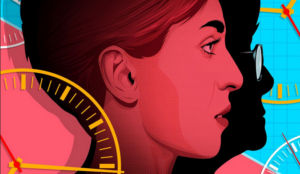Biological age—a measure of health that can be more or less than your chronological age—might help determine your quality of life as you get older, scientists say.
The idea behind biological age is that your cells and organs have ages that vary from your regular age. Many aging-research scientists believe that knowing your biological age could help you postpone or avoid Alzheimer’s, cancer, cardiovascular disease or other age-related illnesses. Some also believe biological age can better predict an individual’s lifespan.
Other scientists agree that biological age is important but disagree that it can predict your life. They say there is no standard way to measure biological age and many of the tools in development aren’t yet proven. At the center of the debate are hopes that people can prolong their lives by changing their behaviors; a crop of companies are betting on it.
Howling the Horror of Loss: Keening & death lament of the Irish
David Sinclair, professor of genetics and co-director of the Paul F. Glenn Center for Biology of Aging Research at Harvard Medical School, is among the researchers and entrepreneurs promoting the notion of a biological age. He describes it as “like a credit score for your body.”
Dr. Sinclair is 52 chronologically but says he is biologically more like 42. Dr. Sinclair is a co-founder of a new company that is developing a biological-age test.
Read more: WSJ
Ask me anything
Explore related questions





